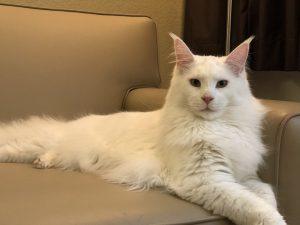Siamese cats are one of the most beloved and recognizable cat breeds in the world, known for their striking blue eyes, sleek bodies, and engaging personalities. For many cat owners, these enchanting felines are more than just pets—they’re members of the family. One of the most common questions potential and current Siamese cat owners ask is, “How long do Siamese cats live?” Understanding the average lifespan of a Siamese cat, as well as factors that can influence their longevity, is essential for ensuring that your feline companion enjoys a long, healthy, and happy life. In this comprehensive guide, we’ll explore the typical lifespan of Siamese cats, how it compares to other breeds, factors that affect their longevity, and tips for helping your Siamese cat live a long and fulfilling life.
The Average Lifespan of a Siamese Cat

How Long Do Siamese Cats Live?
On average, Siamese cats have a lifespan of 15 to 20 years, with many Siamese cats living well into their 20s. This makes Siamese cats one of the longer-lived cat breeds, especially when compared to other breeds with shorter life expectancies. It’s not uncommon for Siamese cats to reach 18 years or more with proper care, nutrition, and regular veterinary check-ups.
How Does This Compare to Other Cat Breeds?
When compared to other cat breeds, Siamese cats tend to have a longer lifespan. For example, while the average lifespan of domestic cats generally ranges from 12 to 15 years, many Siamese cats exceed this range. Breeds like the Persian and the Maine Coon typically have slightly shorter average lifespans, ranging from 10 to 15 years, though some individual cats can live longer.
The longevity of the Siamese cat can be attributed to a combination of factors, including genetics, health care, and the generally robust nature of the breed. However, it’s important to note that individual lifespans can vary based on several factors, including the cat’s overall health, lifestyle, and environment.
Factors That Influence the Lifespan of Siamese Cats
While the average lifespan of a Siamese cat is impressive, several factors can influence how long an individual cat lives. Understanding these factors can help you make informed decisions about your cat’s care and maximize their chances of a long and healthy life.
Genetics and Breed-Specific Health Issues
Genetics play a significant role in determining the lifespan of any cat, and Siamese cats are no exception. While Siamese cats are generally healthy, they are predisposed to certain genetic conditions that can affect their longevity. Some of the common health issues seen in Siamese cats include:
- Progressive Retinal Atrophy (PRA): A genetic condition that causes gradual loss of vision, leading to blindness. While PRA doesn’t typically affect lifespan, it can impact a cat’s quality of life.
- Respiratory Issues: Siamese cats are known for their wedge-shaped heads and slender bodies, which can sometimes lead to respiratory problems, such as asthma or chronic bronchitis.
- Dental Issues: Siamese cats are prone to dental problems, including gingivitis and periodontal disease, which can affect their overall health if not properly managed.
- Amyloidosis: A condition where abnormal protein deposits (amyloid) accumulate in organs, particularly the liver and kidneys, potentially leading to organ failure.
Diet and Nutrition
Proper nutrition is crucial for the health and longevity of any cat, including Siamese cats. A well-balanced diet that meets your cat’s specific nutritional needs can help prevent obesity, support overall health, and reduce the risk of age-related diseases.
- High-Quality Cat Food: Choose a high-quality cat food that lists meat as the first ingredient and is free from artificial additives and fillers. This ensures that your Siamese cat receives the essential nutrients needed for healthy growth and maintenance.
- Portion Control: Overfeeding can lead to obesity, which is a significant risk factor for various health issues, including diabetes, heart disease, and joint problems. It’s essential to monitor your cat’s weight and adjust their food intake as needed.
- Hydration: Ensure your Siamese cat has access to fresh water at all times. Proper hydration is important for maintaining kidney health and overall well-being.
Regular Veterinary Care
Regular veterinary check-ups are essential for monitoring your Siamese cat’s health and catching any potential issues early. Preventative care can significantly impact your cat’s lifespan and quality of life.
- Vaccinations: Keep your cat up-to-date on vaccinations to protect against common feline diseases.
- Parasite Prevention: Use appropriate flea, tick, and worm preventatives to protect your cat from parasites.
- Dental Care: Regular dental check-ups and cleanings can prevent dental disease and related health issues.
- Routine Health Screenings: As your cat ages, routine blood work and other diagnostic tests can help detect and manage age-related conditions, such as kidney disease or hyperthyroidism.
Environment and Lifestyle
The environment in which your Siamese cat lives can also have a significant impact on their lifespan. A safe, stimulating, and nurturing environment is key to keeping your cat healthy and happy.
- Indoor vs. Outdoor Living: Indoor cats generally live longer than outdoor cats due to reduced exposure to dangers such as traffic, predators, and infectious diseases. Keeping your Siamese cat indoors or providing a secure outdoor enclosure can help protect them from harm.
- Mental and Physical Stimulation: Siamese cats are intelligent and active, requiring plenty of mental and physical stimulation to stay healthy. Providing toys, interactive playtime, scratching posts, and climbing structures can keep your cat engaged and prevent boredom-related behaviors.
- Stress Management: Reducing stress is important for your cat’s overall health. Ensure your Siamese cat has a quiet, safe space to retreat to, and avoid major disruptions to their routine.
Spaying or Neutering
Spaying or neutering your Siamese cat can have several health benefits that contribute to a longer lifespan. Spaying females eliminates the risk of uterine infections and reduces the risk of breast cancer, while neutering males reduces the risk of testicular cancer and decreases aggressive behavior that could lead to injury.
Preventative Health Measures
Preventative health measures are crucial in ensuring your Siamese cat lives a long and healthy life. Regular grooming, dental care, and weight management are all important aspects of preventative health care.
- Grooming: Regular brushing helps remove loose fur, reduce shedding, and prevent hairballs. While Siamese cats have short coats that require minimal grooming, regular grooming sessions help keep their skin and coat healthy.
- Dental Care: Brushing your cat’s teeth regularly with cat-specific toothpaste can prevent dental issues. Consider dental treats or toys that help clean your cat’s teeth.
- Weight Management: Maintaining a healthy weight is crucial for preventing obesity-related health issues. Monitor your cat’s weight and adjust their diet and exercise routine as needed.
Converting a Siamese Cat’s Age to Human Years

Many cat owners are curious about how their cat’s age compares to human years. While there’s no exact formula, a commonly used method is to consider the first year of a cat’s life as equivalent to 15 human years, the second year as equivalent to 9 human years, and each subsequent year as equivalent to 4 human years. Using this method, you can estimate your Siamese cat’s age in human years.
Age Conversion Chart
Here’s a general guide to converting your Siamese cat’s age to human years:
| Cat’s Age (Years) | Human Equivalent (Years) |
| 1 | 15 |
| 2 | 24 |
| 3 | 28 |
| 4 | 32 |
| 5 | 36 |
| 6 | 40 |
| 7 | 44 |
| 8 | 48 |
| 9 | 52 |
| 10 | 56 |
| 11 | 60 |
| 12 | 64 |
| 13 | 68 |
| 14 | 72 |
| 15 | 76 |
| 16 | 80 |
| 17 | 84 |
| 18 | 88 |
| 19 | 92 |
| 20 | 96 |
Understanding Your Cat’s Life Stages
Cats go through several life stages, each with its own set of care requirements and health considerations. Understanding these stages can help you provide the best care for your Siamese cat at every age.
- Kitten (0-1 Year): This is a period of rapid growth and development. Kittens require a diet rich in protein and calories, regular veterinary check-ups, and socialization.
- Young Adult (1-6 Years): During this stage, your cat is in their prime, with high energy levels and relatively few health issues. Regular play, a balanced diet, and routine veterinary care are important.
- Mature Adult (7-10 Years): As your cat enters middle age, they may start to slow down. Regular exercise, weight management, and health screenings become increasingly important.
- Senior (11-14 Years): Senior cats may begin to experience age-related health issues, such as arthritis or kidney disease. Regular veterinary visits, a senior-appropriate diet, and managing any chronic conditions are crucial during this stage.
- Geriatric (15+ Years): Geriatric cats require extra care and attention, as they are more susceptible to illness and may need specialized care. Regular check-ups, a comfortable living environment, and close monitoring of their health are essential.
Tips for Helping Your Siamese Cat Live a Long Life
While there’s no way to guarantee a specific lifespan, there are several steps you can take to maximize your Siamese cat’s chances of living a long and healthy life.
Provide a Balanced Diet
Feeding your Siamese cat a high-quality, balanced diet is one of the most important factors in ensuring their longevity. Choose a cat food that meets their nutritional needs, and monitor their weight to prevent obesity.
Keep Your Cat Indoors
Indoor cats are generally safer and live longer than outdoor cats. Keeping your Siamese cat indoors protects them from dangers such as traffic, predators, and infectious diseases.
Regular Veterinary Care
Schedule regular veterinary check-ups to monitor your cat’s health and catch any potential issues early. Preventative care, including vaccinations, dental care, and parasite prevention, is key to keeping your cat healthy.
Mental and Physical Stimulation
Siamese cats are intelligent and active, requiring plenty of mental and physical stimulation. Provide toys, interactive playtime, scratching posts, and climbing structures to keep your cat engaged and prevent boredom.
Maintain a Stress-Free Environment
Reducing stress is important for your cat’s overall health. Ensure your Siamese cat has a quiet, safe space to retreat to, and avoid major disruptions to their routine.
Monitor for Age-Related Changes
As your Siamese cat ages, monitor them closely for signs of age-related changes, such as weight loss, changes in appetite, or decreased mobility. Early detection and management of age-related conditions can significantly impact their quality of life.
Consider Pet Insurance
Pet insurance can help cover the costs of veterinary care, including preventative care and treatment for chronic conditions. Investing in pet insurance can provide peace of mind and ensure that your cat receives the care they need throughout their life.
Related Post:
Pet Supply Plus: Your One-Stop Shop for All Your Pet Needs
Best Vacuum for Pet Hair: Comprehensive Guide to Keep Your Home Fur-Free
Pet-Friendly Hotels Near Me: A Comprehensive Guide for Pet Owners
Siamese cats are known for their longevity, with many living well into their late teens and even early 20s. By understanding the factors that influence their lifespan and providing the proper care, you can help ensure that your Siamese cat enjoys a long, healthy, and happy life. Whether your cat is a playful kitten or a wise senior, the bond you share with your Siamese companion is one that will bring joy and love to your life for many years to come. By following the tips and guidelines outlined in this guide, you can maximize your cat’s chances of living a long and fulfilling life, making the most of every moment you spend together.




